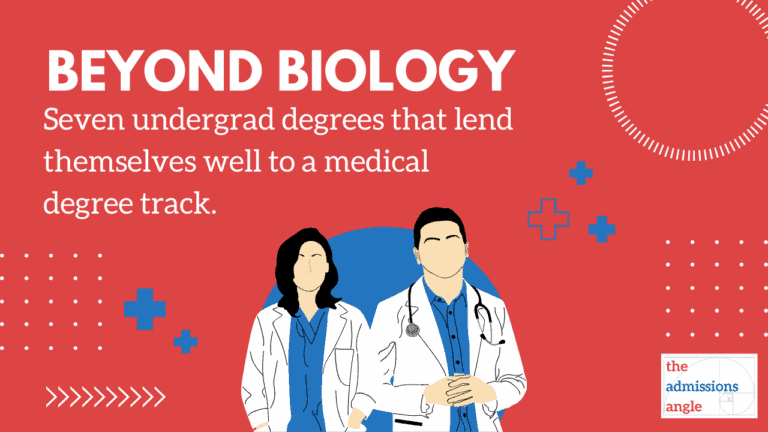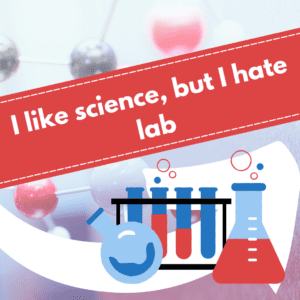
Beyond Biology: Other Undergraduate Degree Paths to Medical School
Embarking on the journey toward a medical degree is a profound and impactful decision driven by a passion for healing, a commitment to the well-being of others, and a desire to contribute to the ever-evolving healthcare field.

By NOELLE COMPTON
Traditionally, the path to medical school has been associated with a pre-med track, often centered around a focus on biology. However, the landscape of medical school admissions is transforming, and aspiring physicians are discovering that a diverse array of undergraduate degrees can serve as excellent alternatives.
Biology isn’t the end all be all for students who are considering a medical degree. The key lies not only in passion but also in ensuring that the necessary prerequisites are met. This article explores various undergraduate degrees that can pave the way to a successful medical school journey when coupled with required courses and strong MCAT scores.

Public Health
Example Programs: Public Health (UC Berkeley), Community Health (Tufts)
Public health programs provide students with a holistic understanding of health issues on a community and global level. Graduates are equipped not only to address individual patient needs but also to tackle broader public health challenges.
Public health programs emphasize critical thinking, problem-solving, and epidemiological analysis. These skills are highly transferable to the MCAT, especially in sections such as Critical Analysis and Reasoning Skills (CARS) and Biological and Biochemical Foundations of Living Systems. Public health courses often cover topics related to population health, statistics, and research methodologies, aligning with the data interpretation and analysis skills required in the MCAT.
Specialized Biology
Example Programs: Biochemistry + Molecular Biology (UC Irvine), Microbiology + Immunology (UC Irvine), Behavioral Biology (Johns Hopkins), Integrative Biology (UC Berkeley)
Specialized biology programs delve deep into specific areas of biological sciences. Whether it’s the molecular intricacies or the behavioral aspects of living organisms, these degrees offer a focused approach to biological understanding.
Specialized biology degrees in biochemistry, molecular biology, microbiology, or integrative biology provide a comprehensive understanding of biological systems. In-depth knowledge of molecular processes, cellular functions, and organismal biology gained through specialized biology programs is highly relevant to the MCAT’s scientific inquiry and reasoning skills.
Psychology/Neuroscience
Example Programs: Health Science and Psychology (Northeastern), Neural Science (NYU), Behavior and Health (Boston University)
Degrees in psychology and neuroscience provide insights into the intricate workings of the human mind. Understanding behavior and mental processes is crucial for anyone entering the medical field, making these degrees valuable assets.
Psychology and neuroscience programs offer insights into the human mind, behavior, and neural processes. This understanding is crucial for the Psychological, Social, and Biological Foundations of Behavior section of the MCAT, giving students an advantage in understanding the psychological aspects of healthcare.

Health & Humanities
Example Programs: Medicine, Science, and the Humanities (Johns Hopkins), Health and Society (UT Austin), Science, Technology, and Society (U Penn)
A blend of science and humanities fosters a more well-rounded approach to healthcare. Graduates are equipped not just with medical knowledge but also with a deep understanding of the societal and ethical dimensions of healthcare.
Health and humanities programs foster communication, ethical reasoning, and a broader understanding of societal and cultural influences on healthcare. Such skills are vital for the MCAT’s Critical Analysis and Reasoning Skills (CARS) and Psychological, Social, and Biological Foundations of Behavior sections. An appreciation for the societal context of health issues gained through health and humanities programs can enhance performance in MCAT sections that involve understanding the impact of culture and society on health.
College Admissions Services
Schedule a Free Consultation
Meet with a mentor one-on-one via video chat to talk about your son/daughter’s admissions plan. Afterwards, receive a no-obligation Customized College Roadmap (CCR) with advice on courses, extracurricular activities, standardized tests, and Admissions Angle strategy.
Kinesiology & Exercise Science
Example Programs: Movement Science (University of Michigan), Health and Exercise Science (Syracuse)
Kinesiology and exercise science programs focus on the mechanics of human movement and the impact of physical activity on health. These degrees are ideal for individuals interested in the intersection of lifestyle and healthcare.
Programs in kinesiology and exercise science provide knowledge of human movement and physiology. This knowledge benefits students when testing on the Biological and Biochemical Foundations of Living Systems section of the MCAT. Understanding the physiological effects of exercise on the body aligns with MCAT content related to homeostasis, organ systems, and the impact of physical activity on health.

Pharmaceutical Science/Specialized Chemistry
Example Programs: Pharmaceutical Science (University of Michigan or Northeastern)
A strong foundation in pharmaceutical sciences or specialized chemistry is essential for understanding drug interactions and mechanisms. Students are well-prepared for the pharmaceutical and research aspects of medicine.
A strong foundation in pharmaceutical sciences and specialized chemistry provides a solid understanding of drug interactions and chemical processes. This knowledge is valuable for the MCAT’s Chemical and Physical Foundations of Biological Systems section. Concepts such as chemical kinetics, thermodynamics, and chemical equilibrium, commonly covered in pharmaceutical science and chemistry programs, directly apply to MCAT content.
Bioinformatics
Example Programs: Biocomputing/Bioinformatics/Biotechnology (UCSD), Computational and Systems Biology (UCLA)
In the era of big data, bioinformatics plays a crucial role in healthcare. Understanding how to analyze biological data is valuable for physicians involved in research and technology-driven medical practices.
Bioinformatics programs equip students with skills in data analysis, computational biology, and systems biology. These skills are highly relevant for the MCAT’s Biological and Biochemical Foundations and Chemical and Physical Foundations sections. Bioinformatics programs often cover genomics, proteomics, and data interpretation, aligning with MCAT content related to molecular biology and genetics.

Conclusion
Aspiring medical students should be encouraged to follow their passions and choose undergraduate degrees that align with their interests. The medical field is evolving, and admissions committees recognize the value of diverse educational backgrounds. By combining the required coursework with a strong performance on the MCAT, students can chart unique pathways to medical school, bringing a rich tapestry of perspectives to the field of healthcare.










